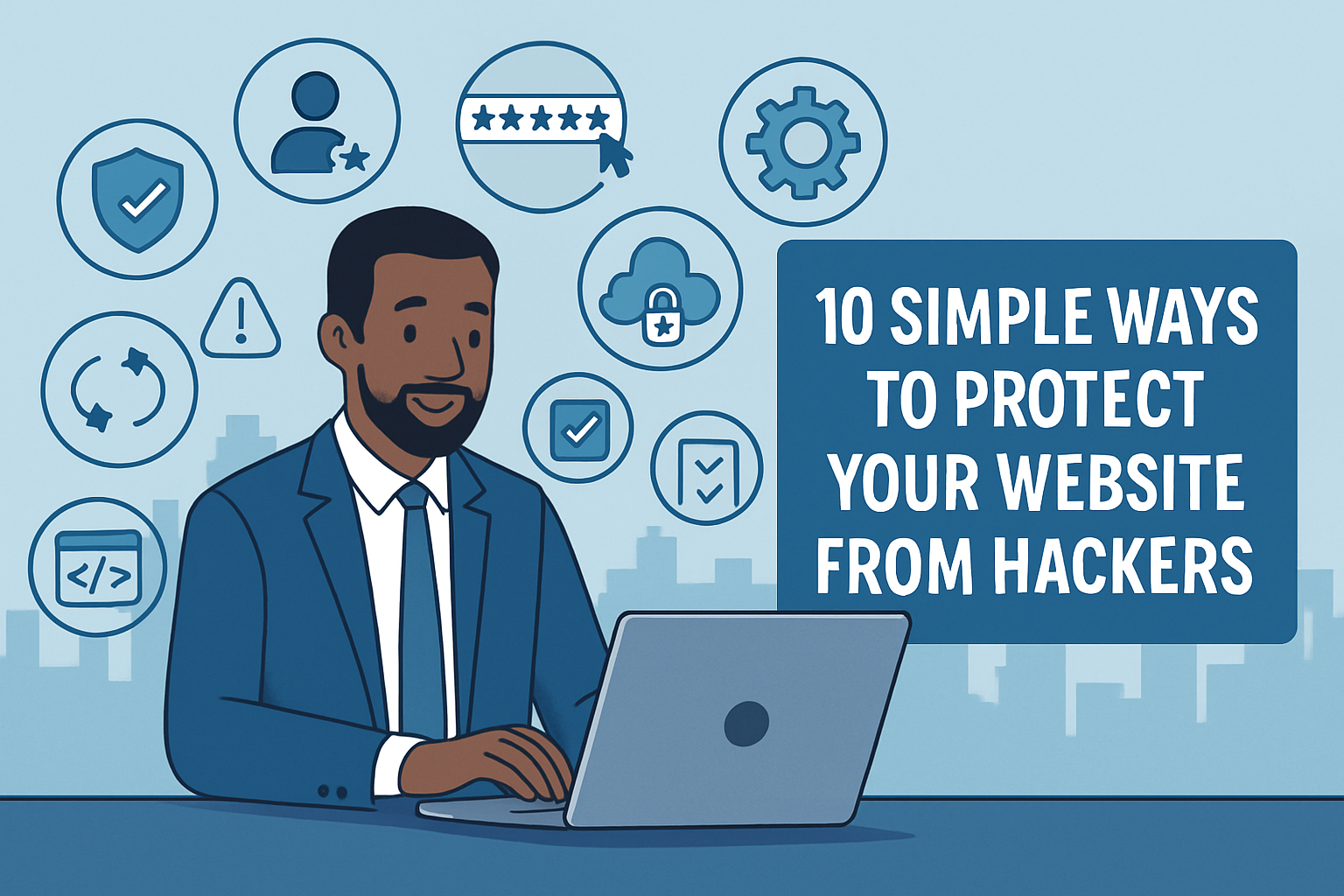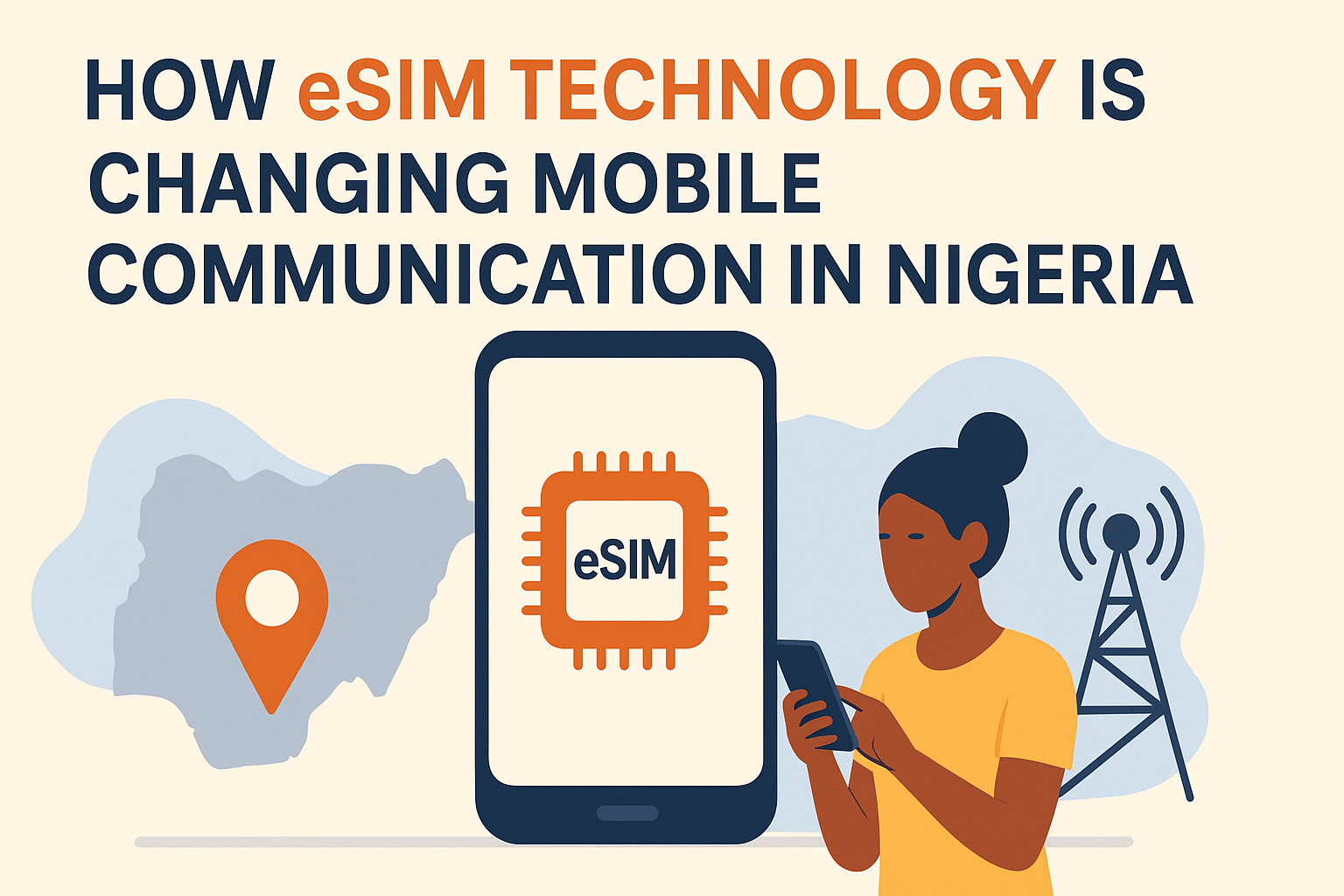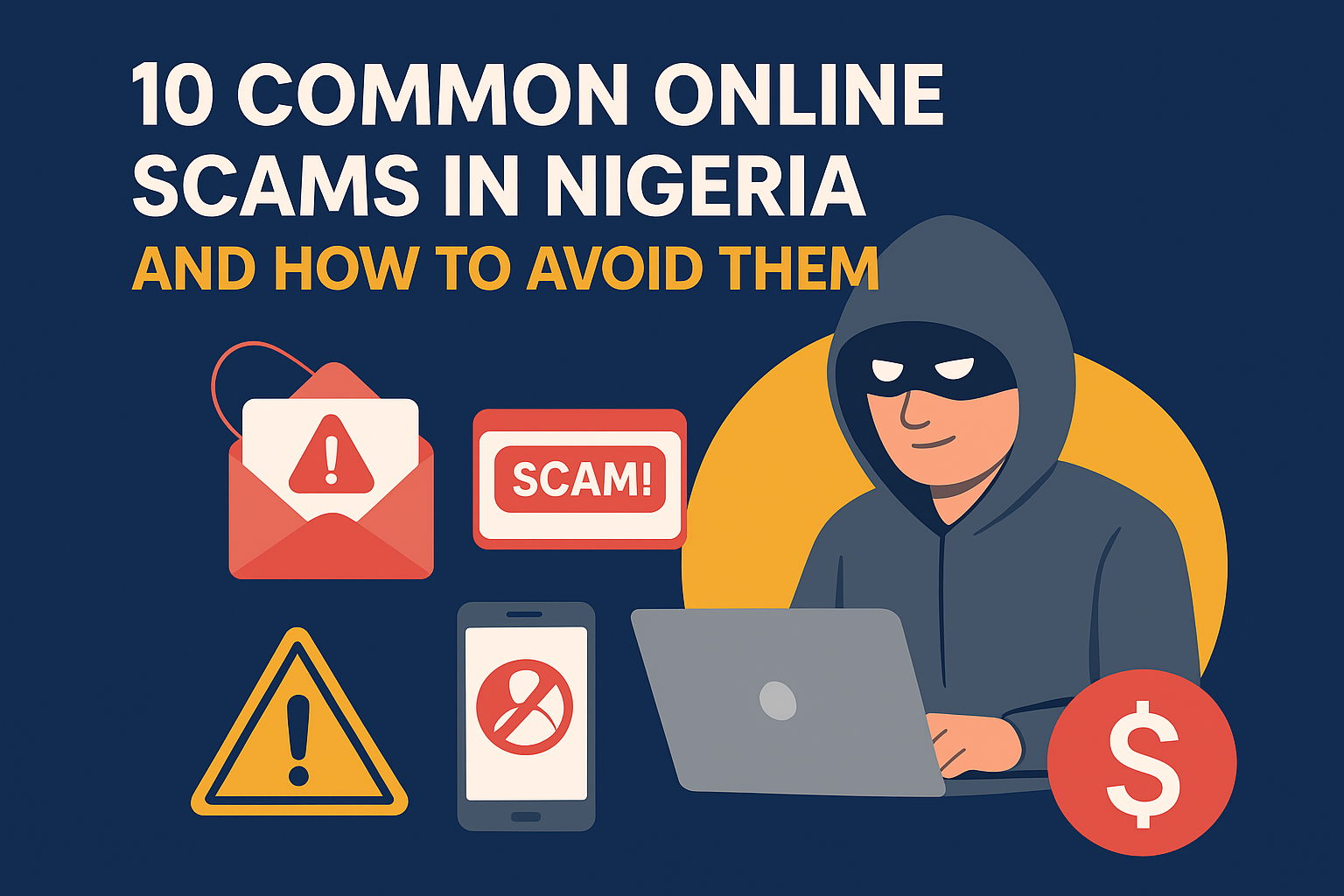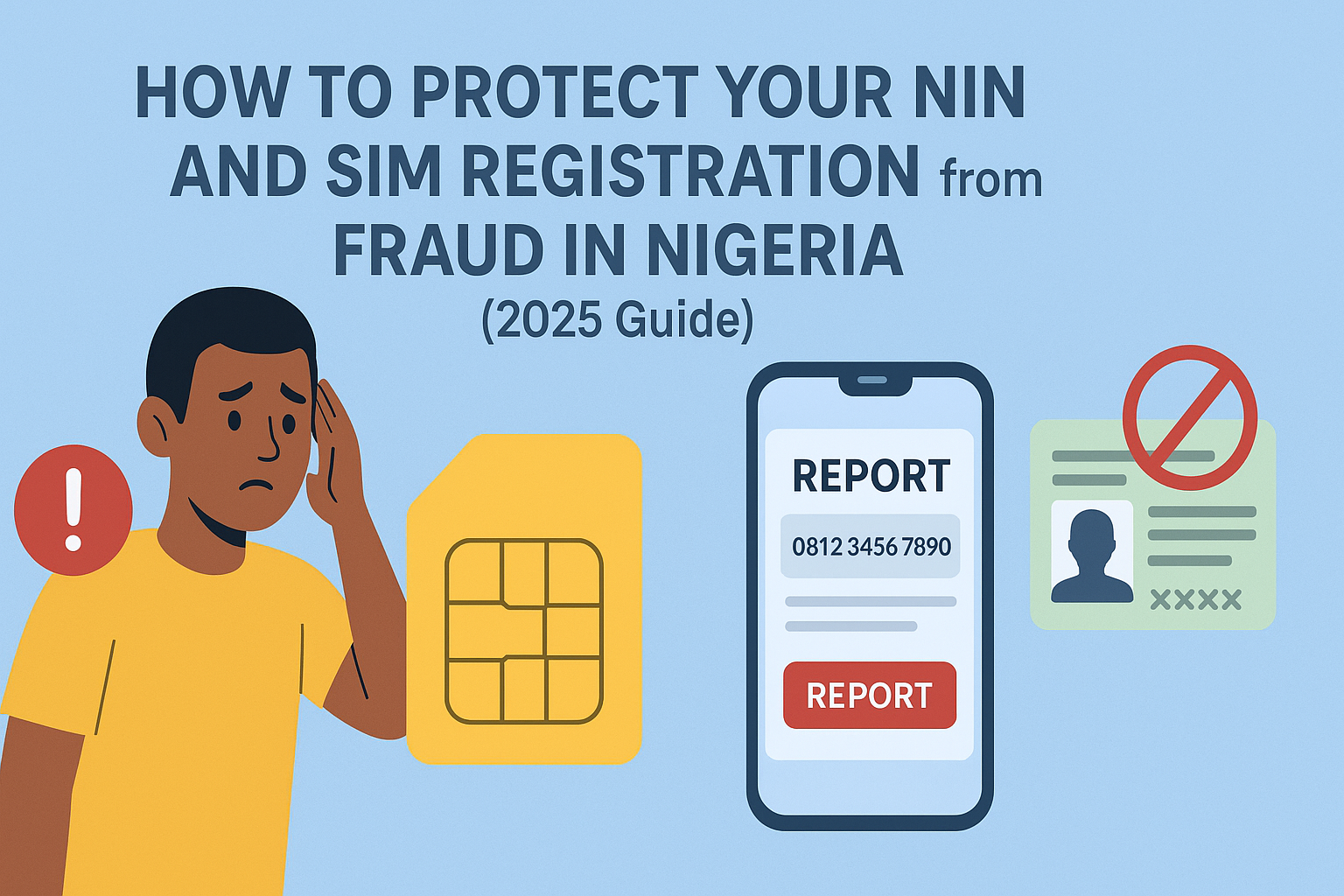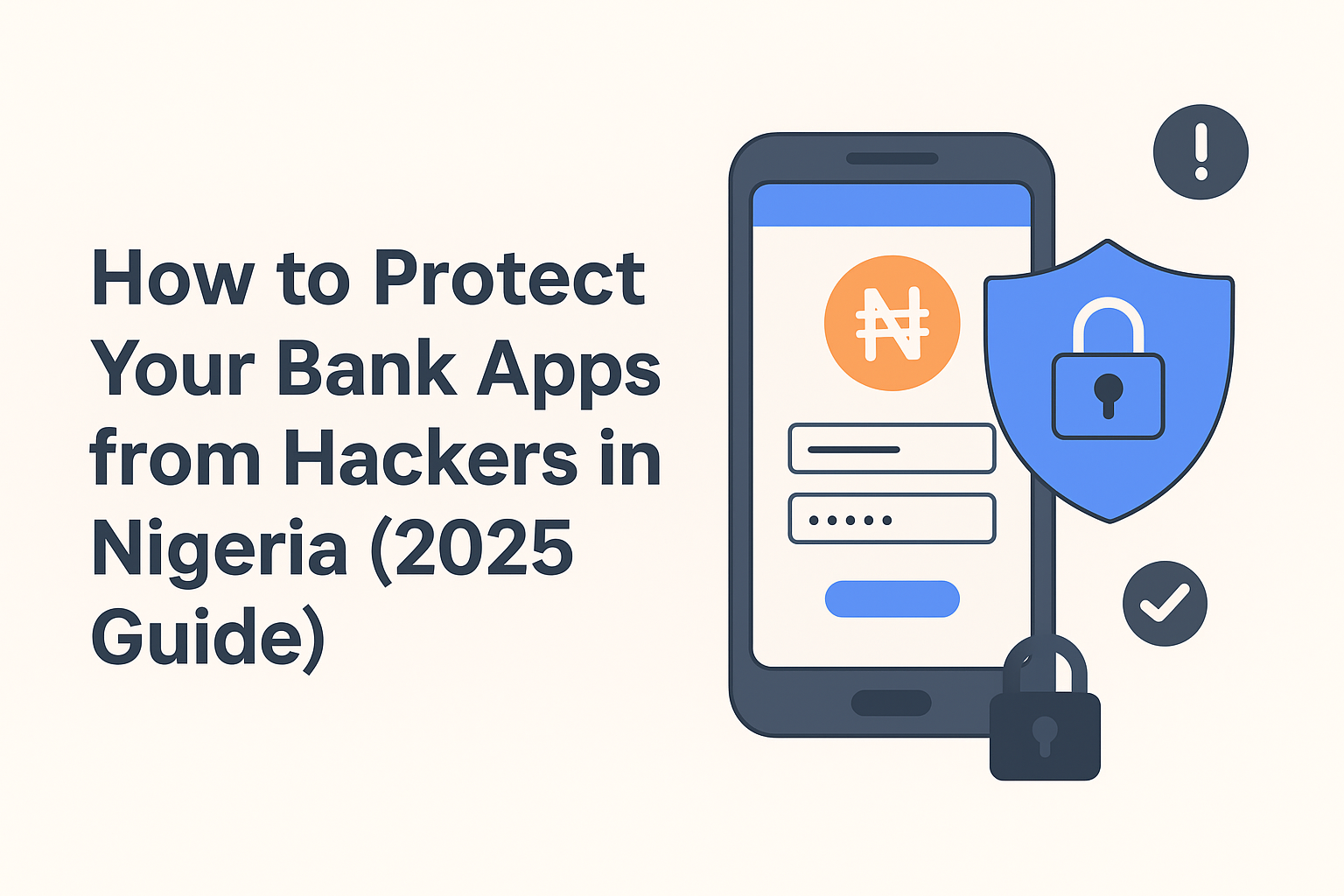10 Simple Ways to Protect Your Website from Hackers
In today’s digital world, a website is no longer optional for Nigerian businesses. Whether you run an online store, a service-based company, or a personal blog, your website is one of your most valuable assets. Unfortunately, it’s also one of the most vulnerable. Cybercriminals are constantly looking for weak points to exploit, and the consequences of a security breach can be devastating — from stolen customer data to a complete website shutdown.
The good news is that protecting your website from hackers doesn’t have to be complicated or expensive. In this guide, we’ll share 10 simple but highly effective website security tips every Nigerian business owner should implement.
1. Keep Your Website Software Updated
Outdated software is one of the leading causes of website hacks.
- Always update your CMS (WordPress, Joomla, Drupal, or custom systems).
- Keep all plugins, themes, and third-party tools up to date.
- Enable automatic updates whenever possible to reduce risks.
Pro Tip: Schedule weekly checks to ensure everything is running the latest version.
Read also: Top Cybersecurity Threats Facing Nigerian Businesses in 2025
2. Use Strong and Unique Passwords
Weak passwords act like an open door for hackers.
- Create passwords at least 12 characters long with uppercase, lowercase, numbers, and symbols.
- Avoid common passwords like “admin123” or “password.”
- Use a password manager such as LastPass or 1Password to generate and store secure credentials.
3. Install an SSL Certificate
An SSL certificate encrypts data exchanged between your website and visitors, protecting sensitive information such as logins and payment details.
- Websites with SSL display HTTPS and a padlock icon.
- Google favours secure websites, giving them a ranking boost.
- Affordable SSL certificates are available from Nigerian hosting providers like WhoGoHost, HostNowNow, or DomainKing.
4. Limit Login Attempts
Brute-force attacks happen when hackers try endless password combinations.
- Install security plugins such as Limit Login Attempts Reloaded or Wordfence Security.
- Disable the default “admin” username and create a unique one.
Reda also: The Cost of Ignoring Website Security: Real-Life Examples
5. Regularly Back Up Your Website
Backups are your last line of defence.
- Set up daily or weekly automatic backups.
- Store them securely on external servers or cloud storage (Google Drive, Dropbox).
- Popular tools: UpdraftPlus and BackupBuddy.
6. Use a Web Application Firewall (WAF)
A Web Application Firewall filters malicious traffic before it reaches your site.
- Popular WAF providers: Cloudflare, Sucuri, and Astra Security.
- Protects against hacking attempts, malware injections, and DDoS attacks that can crash your site.
7. Remove Unused Plugins and Themes
Every plugin or theme you install increases your risk.
- Delete plugins or themes you no longer use.
- Even deactivated ones may contain vulnerabilities.
- Stick to trusted and regularly updated tools only.
Read also: Public Wi-Fi in Nigeria: Safe or Not?
8. Secure Your Admin Dashboard
Your admin area is the “control centre” of your website.
- Change the default WordPress login URL (e.g., from
/wp-adminto something unique. - Enable Two-Factor Authentication (2FA).
- Restrict admin access by IP address if possible.
9. Monitor Your Website for Suspicious Activity
Early detection can prevent major damage.
- Use monitoring tools like Sucuri SiteCheck, MalCare, or Google Search Console.
- Set up alerts for unusual login attempts or file changes.
10. Educate Your Team
Human error is one of the most common causes of cyberattacks.
- Train staff on password best practices and phishing email awareness.
- Limit admin access only to people who need it.
- Create a clear protocol for logging in and updating content.
Read also: Why Regular Website Maintenance is Non-Negotiable
Bonus Tips for Nigerian Business Owners
- Choose a secure hosting provider with built-in security features (malware scanning, firewalls, daily backups).
- Avoid logging in from public Wi-Fi unless using a VPN.
- Enable CAPTCHA on all forms to block automated spam.
Conclusion
Hackers don’t just target big corporations — small businesses in Nigeria are often easier targets because of weaker security measures. By implementing these 10 simple website security strategies, you’ll drastically reduce the risk of cyberattacks and protect your reputation, your customers, and your income.
Remember: Website security is not a one-time task. Stay proactive, update regularly, and invest in the right tools to safeguard your online presence in 2025 and beyond


